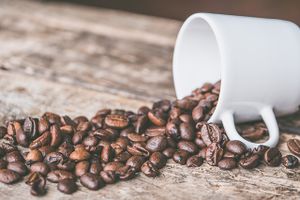Coffee
From MEpedia, a crowd-sourced encyclopedia of ME and CFS science and history
This article is a stub. The talk page may contain suggestions. |

There is some evidence that coffee may induce a Th1 response.[1]
Arabinogalactan, a coffee bean polysaccharide, increased the production of macrophages as well as of Th1 cytokines IL-12p40 and IFN-gamma.[2] It also ameliorated allergic response in a mouse model of dermatitis.[3]
Coffee reduces the risk of liver, kidney, premenopausal breast cancer and colorectal cancer.[4]
See also[edit | edit source]
References[edit | edit source]
- ↑ Goto, Masao; Yamaki, Kohji; Shinmoto, Hiroshi; Takano-Ishikawa, Yuko (November 2009), "Continuous orally administered coffee enhanced the antigen-specific Th1 response and reduced allergic development in a TCR-transgenic mice model", Bioscience, Biotechnology, and Biochemistry, 73 (11): 2439–2444, doi:10.1271/bbb.90393, ISSN 1347-6947, PMID 19897909
- ↑ http://www.cabdirect.org/abstracts/20073222011.html;jsessionid=7ECB009BAE640BF8D08D90DBFA7D242D
- ↑ http://www.cabdirect.org/abstracts/20093174353.html
- ↑ Nkondjock, André (May 18, 2009), "Coffee consumption and the risk of cancer: An overview", Cancer Letters, 277 (2): 121–125, doi:10.1016/j.canlet.2008.08.022, ISSN 0304-3835, retrieved November 9, 2016

